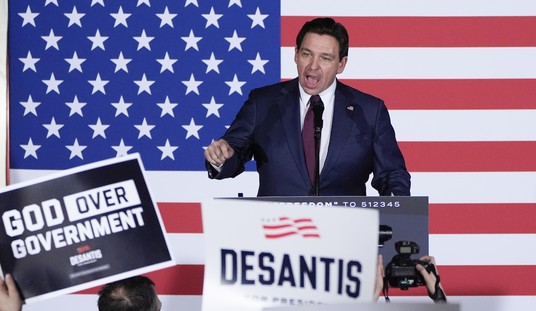Last week, HuffPo posted an interview with the director of the NAACP’s Climate Justice Initiative, which is meant to help address climate change’s “disproportionate impact on communities of color in the United States and around the world” and to “educate and mobilize communities to address this human and civil rights issue.” While I’m sure (leastaways, I certainly hope) that these environmental activists have their hearts in the right place and want to help alleviate the problems of mass poverty, so do I — and this interview perfectly demonstrates the sort of green-tinged central-planning hubris by which I just can’t abide.
David Vognar: We hear a lot about how climate change will affect poor people overseas due to rising sea levels and poor access to food. How will climate change affect minorities and the poor in the U.S.?
Jacqueline Patterson: There are existing vulnerabilities for people who are in low-income situations whether it’s because they are living in conditions of poor housing stock or because they have homes that are in the floodplain or because they have mobility issues, because they don’t have vehicles and there is not community infrastructure. There are a range of different, preexisting vulnerabilities so that when things like extreme weather events come along, they are less prepared to be able to respond to them, or to be able to survive them in some cases. …
DV: Can you describe to me your recent work?
JP: Our focal campaign is around coal-fired power plants. It’s the ‘clean them up or shut them down’ kind of message. We recognize that in order to actually eliminate the harm that coal-fired power plants pose to both communities and the environment, we have to shut them down. …
DV: What about energy efficiency?
JP: Our second objective is to increase energy efficiency and clean energy. Particularly when we have the first objective of shutting down coal-fired power plants, we have to not be myopically just trying to eliminate the bad but have some feasible ways to replace it with the good so that we can reduce the harmful fossil fuel-based energy production. …
I am truly irked when environmentalists look at poor communities and third-world countries as laboratories for their wildest green fantasies. There is nobody — nobody — who would benefit more from cheap, abundant, and reliable energy sources than poverty-stricken communities. While environmentalists often look at prosperity as the enemy of environmental quality, the opposite is actually true — third-world countries are some of the worst environmental offenders because they have neither the resources nor the luxury to consider their ecological impact.
Real, penetrating, long-term solutions to poverty do not include finding ways to introduce still highly expensive clean-energy technologies into poor communities and hoping they’ll somehow magically take hold — even just in the United States, wind and solar have so far demonstrated themselves to present a net cost to economic growth as they require subsidies and special treatment for their survival. If you want to talk about “sustainability,” great, but taxpayers paying out the nose for expensive green jobs isn’t going to do anything to encourage economic growth or lift people out of poverty.
Many of the problems that Patterson laments persist in poorer communities — housing, infrastructure, and mobility issues — could be solved by encouraging more economically robust communities, which in turn means that perhaps we should be spending our time pushing for freedom and free enterprise instead of just for more clean energy. One thing that’s really helpful for those living in poorer communities is the opportunity to just have a job, which under President Obama has become increasingly difficult, and his EPA’s many environmental regulations and “necessarily skyrocketing” energy prices aren’t doing anything to help lessen people’s economic woes, either.
Please, greenies, I think we can all agree that we can and should be working to alleviate global poverty, but we need to quit attacking the symptoms and start attacking the disease.








Join the conversation as a VIP Member